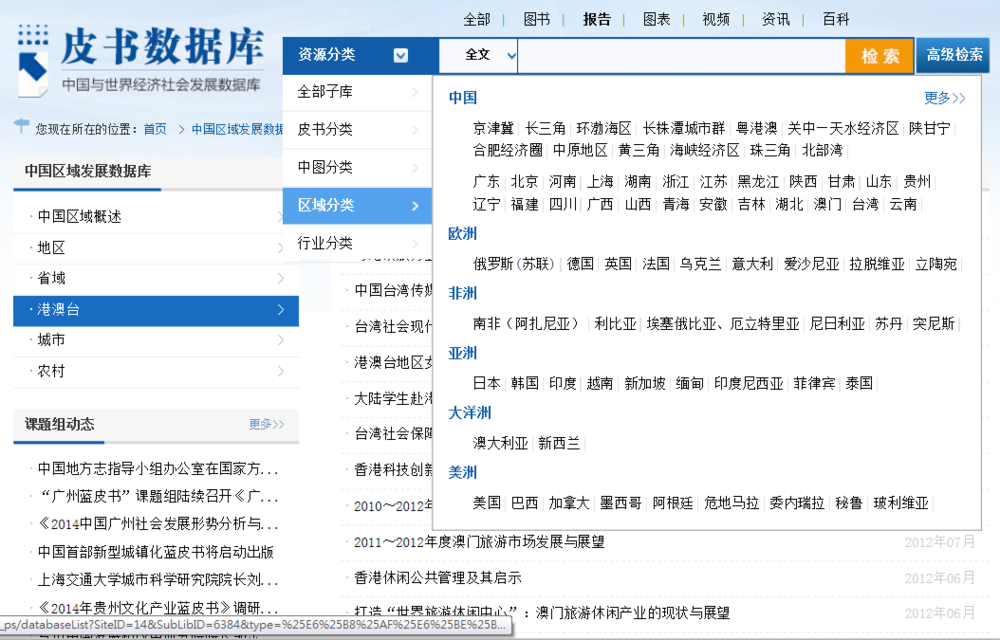Pishu Database
The Best Think Tank from the Authorities of China
Pishu database is produced by Social Sciences Academic Press (China), which belongs to Chinese Academy of Social Sciences (CASS), the premier national academic research organization in the People’s Republic of China for the study in the fields of philosophy and social sciences. SSAP has been devoted to publishing this annual investigation report ─ Pishu series ─ since 1985, such as: the Blue Pishu for industry development, the Green Pishu for agriculture and ecology, the Yellow Pishu for international relations and world economy, and so on.
Since CASS is affiliated with the PRC’s State Council, it is regarded as the official think tank of China authorities. The wealthy collection of Pishu series produces extensive researches on different industries and from different disciplines every year. Because the regional and national survey are done by academic professionals and industrial experts, it often provides the objective view, critical analysis and future prediction to the governments in order to make better policies.

Pishu database comprises 282,000 papers, 297 academic fields, 5.14 billion characters, 36,000 record, 0.64 million diagram and pictures, 67,000 scholars, and more than 13,000 books. This database keep updating its collection under 6 sub-databases, which focuses on society, economy, industry, region development, culture and international issues respectively. Pishu series was considered as the top think bank in Asia by the Foreign Policy magazine. It’s the best research tool to analyse the progression and ongoing changes of contemporary China.
Information


Features
● Searching keywords in Chinese-Traditional can be found in its interface of Chinese-Simple.
● The sub-database or each topic within the databases could be purchased separately.
● Customer could choose to buy the whole database (mirrored version) or annually subscribe.
● Extensive categories, easily retrieve through 7 searching options, including: keyword research, topic research, etc.
● 95% content of the Blue Pishu is produced by the academia, while the Yellow Pishu focuses on international issues, and the Green Pishu offers the policy advices for agriculture, tourism and ecological city.






